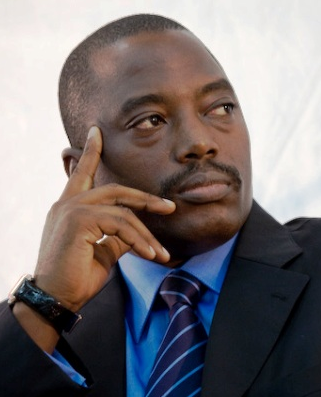
KINSHASA — Political parties in the Democratic Republic of Congo on Saturday signed a deal that calls for President Joseph Kabila to leave power after an election that now will be held by the end of the year instead of mid-2018 as his party originally proposed.
AP

The New Year’s Eve agreement came after months of unrest that left dozens dead and threatened to further destabilise the vast Central African nation with a painful history of dictatorship and civil war.
Catholic Church officials had mediated talks to reach a compromise and initially imposed a Christmas deadline. The negotiations reached a stalemate, though, and resumed again Thursday under mounting pressure to avoid major violence amid opposition calls for Kabila to step down.
Officials announced that a deal had been reached on Saturday evening on the major issues though representatives did not sign it until around 11pm local time on New Year’s Eve.
Monsignor Marcel Utembi, president of the church body known as CENCO, hailed the progress, but acknowledged the challenges still ahead with implementation.
“It’s one thing to have a political compromise, but putting it into place is another,” he said.
Neither Kabila nor opposition leader Etienne Tshisekedi was to personally sign the agreement Saturday. And even before the night was over, some members of Kabila’s party already were casting doubt on the feasibility of the electoral deadline.
- Chamisa under fire over US$120K donation
- Mavhunga puts DeMbare into Chibuku quarterfinals
- Pension funds bet on Cabora Bassa oilfields
- Councils defy govt fire tender directive
Keep Reading
“Elections in 2017 – yes. But not to lie, the questions (about the dates) are highly technical. If they won’t work, there will be an evaluation. It’s why we have adopted a council to follow up on the agreement,” Ramazani Shadari, the deputy prime minister of the interior and a member of Kabila’s party, said.
Kabila became president in 2001 after the assassination of his father, and was constitutionally barred from seeking another term after his mandate expired December 19. However, no presidential election was held in November and a court ruled he could stay in office until such a ballot could be organised.
The president’s party said that wasn’t possible before mid-2018 because of logistical challenges in organising the ballot.
An angry opposition took to the streets demanding that the vote be held as soon as possible.
In his New Year’s message to the Congolese people, Kabila reasserted his commitment to democracy even as opponents accused him of prolonging his rule through a technicality.
“The source of legitimacy is only through the people at the ballot box,” he said. “Under the deal, the vote will be organised by the end of 2017 though some details still need to be finalised. That process could reveal other disputes, and opposition leader Felix Tshisekedi already has signalled that his supporters will only be satisfied the day the transfer of power will happen.”
Still, the agreement to not modify the constitution effectively blocks Kabila from rewriting it so that he can seek a third term, a major victory for the opposition.
Another point of conflict in the ongoing negotiations had been who would serve as prime minister until the elections. Kabila already had gone ahead and appointed someone this month who is from the opposition, but he came from the minority of opposition politicians who had taken part in negotiations back in October.











